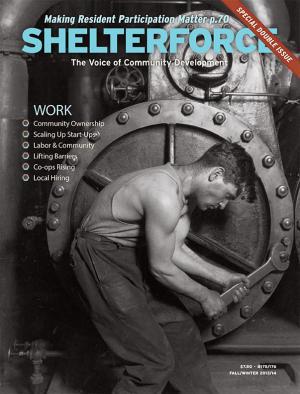Building economic power through community ownership is the antidote to the systemic failures of our current system. Gar Alperovitz's lead article in the new issue of Shelterforce explores a vision for system-changing community economic development.
Despite its great wealth, the United States today faces enormous difficulties, with no easily discernible answers in sight. Elections occur and debates ensue, but many of the most pressing problems facing ordinary citizens are only marginally affected. For the average American, the trends have been bad for a very long time. Real wages for 80 percent of American workers have been stagnant for decades. At the same time, income for the top 1 percent has jumped from roughly 10 percent of all income to roughly 20 percent. Put another way, virtually all the gains of the entire economic system have gone to a tiny, tiny group at the top for at least three decades.
At the most superficial level, Washington—as the saying goes—is broken. The political system is simply incapable of dealing with the challenges. It focuses on deficits, not assets or answers. Long-term, unchanging trends are a clear signal that it’s not simply partisan bickering and congressional stalemate that are causing the problems. We all know that something different is going on—both with the economy and, more fundamentally, with democracy itself.
While there are growing difficulties in our nation’s suburban and rural areas, nowhere are the problems more evident than in far too many of our nation’s cities. The National League of Cities (NLC), which annually publishes a research brief on city fiscal conditions, has documented the rapid deterioration of municipal finance. The NLC’s most recent brief, published last year, found general revenue declines for six consecutive years, an unprecedented average annual decrease of more than 2.5 percent per year, and a cumulative decline in excess of 15 percent. Read the rest of Gar Alperovitz's lead article in Shelterforce...
